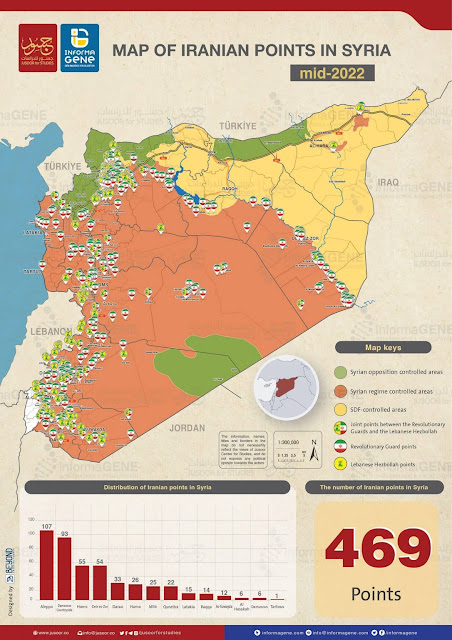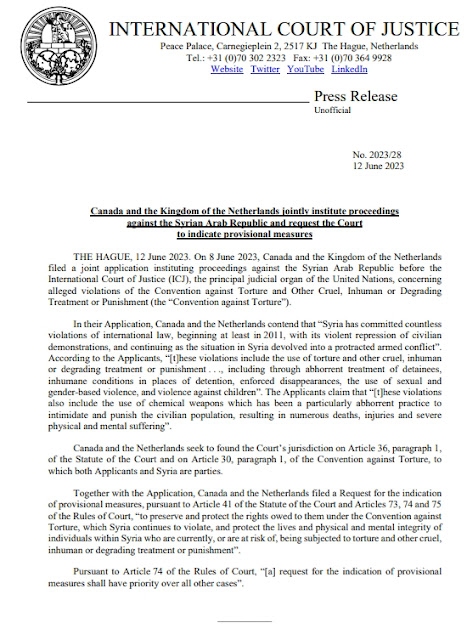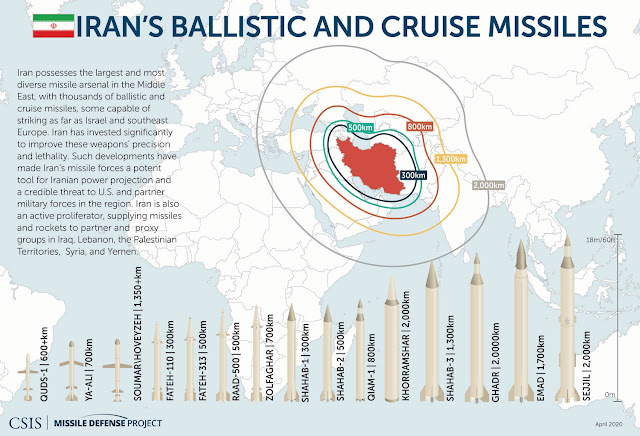The Road After Gaza
Robert Malley and Aaron D. Miller
24 August 2005
The Washington Post
Israel's disengagement from Gaza is a historic event, but for Palestinians and Israelis it will soon be history. Even before the last settler was evacuated, attention had shifted to what will come next. With 2006 an election year in Palestine, Israel and the United States, bold moves are unlikely. Yet prolonged diplomatic slow-motion would be the surest path to renewed confrontation.
Two huge challenges limit what is feasible in the months ahead. First is a large expectations gap. Uncertainty as to Israeli Prime Minister Ariel Sharon's intentions has been fueled by his hawkish past and contradictory statements. He has sought to convince the international community that evacuating Gaza was the first in a series of moves, while indicating to members of his right-wing constituency that it was the last of them.
Whatever his intentions, there is little doubt that for now he wants to do little, and do it slowly. As he sees it, withdrawal from Gaza is not meant to set the stage for a conflict-ending agreement -- in which he does not believe -- or to take Israel back to borders approximating the 1967 lines -- which he rejects.
Palestinian President Mahmoud Abbas is operating according to a very different political clock. Palestinians, convinced that Sharon is giving up Gaza to hold on to the West Bank, will clamor for a return to final-status talks, and Israelis will balk. Should negotiations begin, Palestinians will call for an outcome along the lines discussed in 2000 and 2001, while Israelis will insist on a long-term interim arrangement -- and, possibly, implement it unilaterally. The bottom line: After disengagement it will be impossible to ignore the fundamental gap separating Israeli and Palestinian strategies, extremely difficult to address it and foolhardy not to try to.
The second challenge is the electoral contests in Israel and Palestine, which are far more likely to produce political posturing and catering to extremes than daring and courageous diplomacy. Sharon is facing a tough battle within his own party -- even before national elections, which must be held by November 2006 and will probably occur much sooner. The resignation of Israel's finance minister, Binyamin Netanyahu, gives Sharon's opponents a skilled leader. In the months ahead Sharon will consolidate his political base, not weaken it, move to the right, not to the center, and focus on what he can do to placate his constituency, not the Palestinians. The flip side of settlement evacuation in Gaza may well be settlement expansion in the West Bank and Jerusalem.
Abbas faces his own political challenges. Critical legislative council elections are scheduled for January. With the dominant Fatah movement in disarray, growing public discontent with lawlessness and corruption and sharpening power struggles with the militant Islamic organization Hamas, Abbas is not in a position to launch a major initiative in coming months. He will ask his people to give diplomacy a chance, but he cannot seriously argue that diplomacy liberated Gaza; disengagement was decided before he came to power and would have occurred even had he not.
And while Abbas has no obvious strategy for dealing with the frustrations of West Bank residents, Hamas may. The pause that Sharon needs to protect his political future is precisely what might threaten Abbas's. The most likely scenario is one in which the Islamist movement and other militias maintain calm in Gaza while challenging the Palestinian Authority for lack of progress on prisoner releases, continued settlement activity and the absence of an overall solution. They would then invoke this paralysis to escalate attacks in the West Bank. The bottom line: Moving fast will hurt Sharon's standing; moving slowly will undercut Abbas's. Neither man is prone to political suicide.
For the Bush administration, the implications are clear. There is much Sharon and Abbas should do but won't: turn quickly toward final-status talks, disarm Hamas and Islamic Jihad, freeze construction in Jewish settlements. Meanwhile, back in the real world, efforts must be made to manage the impending strategic clash between Israeli and Palestinian expectations, minimize the risk of armed confrontation and preserve the option of a viable two-state solution.
Israel wants time to digest a traumatic disengagement. Palestinians need convincing that it is only a first step. A feasible middle course would entail focusing on rapid, practical improvements in the West Bank, such as Israeli withdrawal from reoccupied cities, a lifting of checkpoints and release of prisoners, in tandem with improved Palestinian security performance. It would also entail preventing steps that prejudge final-status issues and might in fact preclude their resolution. Israel's path-breaking evacuation should be given full material and political support. But endorsing it should not include endorsing what has come with it and may come after, in particular efforts by Israel to consolidate its hold over a wide area in and around Jerusalem, which would rule out the establishment of a viable Palestinian state.
Finally, a diplomatic timeout will be sustainable only if Palestinians are clearly shown what lies at its end. For this reason, the United States should present the outlines of a permanent solution, with full Arab and international support.
Israel's disengagement is a watershed event. But for all the drama and trauma, Gaza is still only the overture.
Robert Malley is Middle East program director at the International Crisis Group and was President Bill Clinton's special assistant for Arab-Israeli affairs. Aaron D. Miller worked at the State Department for 25 years as a Middle East negotiator and adviser on Arab-Israeli affairs.
Robert Malley and Aaron D. Miller
24 August 2005
The Washington Post
Israel's disengagement from Gaza is a historic event, but for Palestinians and Israelis it will soon be history. Even before the last settler was evacuated, attention had shifted to what will come next. With 2006 an election year in Palestine, Israel and the United States, bold moves are unlikely. Yet prolonged diplomatic slow-motion would be the surest path to renewed confrontation.
Two huge challenges limit what is feasible in the months ahead. First is a large expectations gap. Uncertainty as to Israeli Prime Minister Ariel Sharon's intentions has been fueled by his hawkish past and contradictory statements. He has sought to convince the international community that evacuating Gaza was the first in a series of moves, while indicating to members of his right-wing constituency that it was the last of them.
Whatever his intentions, there is little doubt that for now he wants to do little, and do it slowly. As he sees it, withdrawal from Gaza is not meant to set the stage for a conflict-ending agreement -- in which he does not believe -- or to take Israel back to borders approximating the 1967 lines -- which he rejects.
Palestinian President Mahmoud Abbas is operating according to a very different political clock. Palestinians, convinced that Sharon is giving up Gaza to hold on to the West Bank, will clamor for a return to final-status talks, and Israelis will balk. Should negotiations begin, Palestinians will call for an outcome along the lines discussed in 2000 and 2001, while Israelis will insist on a long-term interim arrangement -- and, possibly, implement it unilaterally. The bottom line: After disengagement it will be impossible to ignore the fundamental gap separating Israeli and Palestinian strategies, extremely difficult to address it and foolhardy not to try to.
The second challenge is the electoral contests in Israel and Palestine, which are far more likely to produce political posturing and catering to extremes than daring and courageous diplomacy. Sharon is facing a tough battle within his own party -- even before national elections, which must be held by November 2006 and will probably occur much sooner. The resignation of Israel's finance minister, Binyamin Netanyahu, gives Sharon's opponents a skilled leader. In the months ahead Sharon will consolidate his political base, not weaken it, move to the right, not to the center, and focus on what he can do to placate his constituency, not the Palestinians. The flip side of settlement evacuation in Gaza may well be settlement expansion in the West Bank and Jerusalem.
Abbas faces his own political challenges. Critical legislative council elections are scheduled for January. With the dominant Fatah movement in disarray, growing public discontent with lawlessness and corruption and sharpening power struggles with the militant Islamic organization Hamas, Abbas is not in a position to launch a major initiative in coming months. He will ask his people to give diplomacy a chance, but he cannot seriously argue that diplomacy liberated Gaza; disengagement was decided before he came to power and would have occurred even had he not.
And while Abbas has no obvious strategy for dealing with the frustrations of West Bank residents, Hamas may. The pause that Sharon needs to protect his political future is precisely what might threaten Abbas's. The most likely scenario is one in which the Islamist movement and other militias maintain calm in Gaza while challenging the Palestinian Authority for lack of progress on prisoner releases, continued settlement activity and the absence of an overall solution. They would then invoke this paralysis to escalate attacks in the West Bank. The bottom line: Moving fast will hurt Sharon's standing; moving slowly will undercut Abbas's. Neither man is prone to political suicide.
For the Bush administration, the implications are clear. There is much Sharon and Abbas should do but won't: turn quickly toward final-status talks, disarm Hamas and Islamic Jihad, freeze construction in Jewish settlements. Meanwhile, back in the real world, efforts must be made to manage the impending strategic clash between Israeli and Palestinian expectations, minimize the risk of armed confrontation and preserve the option of a viable two-state solution.
Israel wants time to digest a traumatic disengagement. Palestinians need convincing that it is only a first step. A feasible middle course would entail focusing on rapid, practical improvements in the West Bank, such as Israeli withdrawal from reoccupied cities, a lifting of checkpoints and release of prisoners, in tandem with improved Palestinian security performance. It would also entail preventing steps that prejudge final-status issues and might in fact preclude their resolution. Israel's path-breaking evacuation should be given full material and political support. But endorsing it should not include endorsing what has come with it and may come after, in particular efforts by Israel to consolidate its hold over a wide area in and around Jerusalem, which would rule out the establishment of a viable Palestinian state.
Finally, a diplomatic timeout will be sustainable only if Palestinians are clearly shown what lies at its end. For this reason, the United States should present the outlines of a permanent solution, with full Arab and international support.
Israel's disengagement is a watershed event. But for all the drama and trauma, Gaza is still only the overture.
Robert Malley is Middle East program director at the International Crisis Group and was President Bill Clinton's special assistant for Arab-Israeli affairs. Aaron D. Miller worked at the State Department for 25 years as a Middle East negotiator and adviser on Arab-Israeli affairs.


